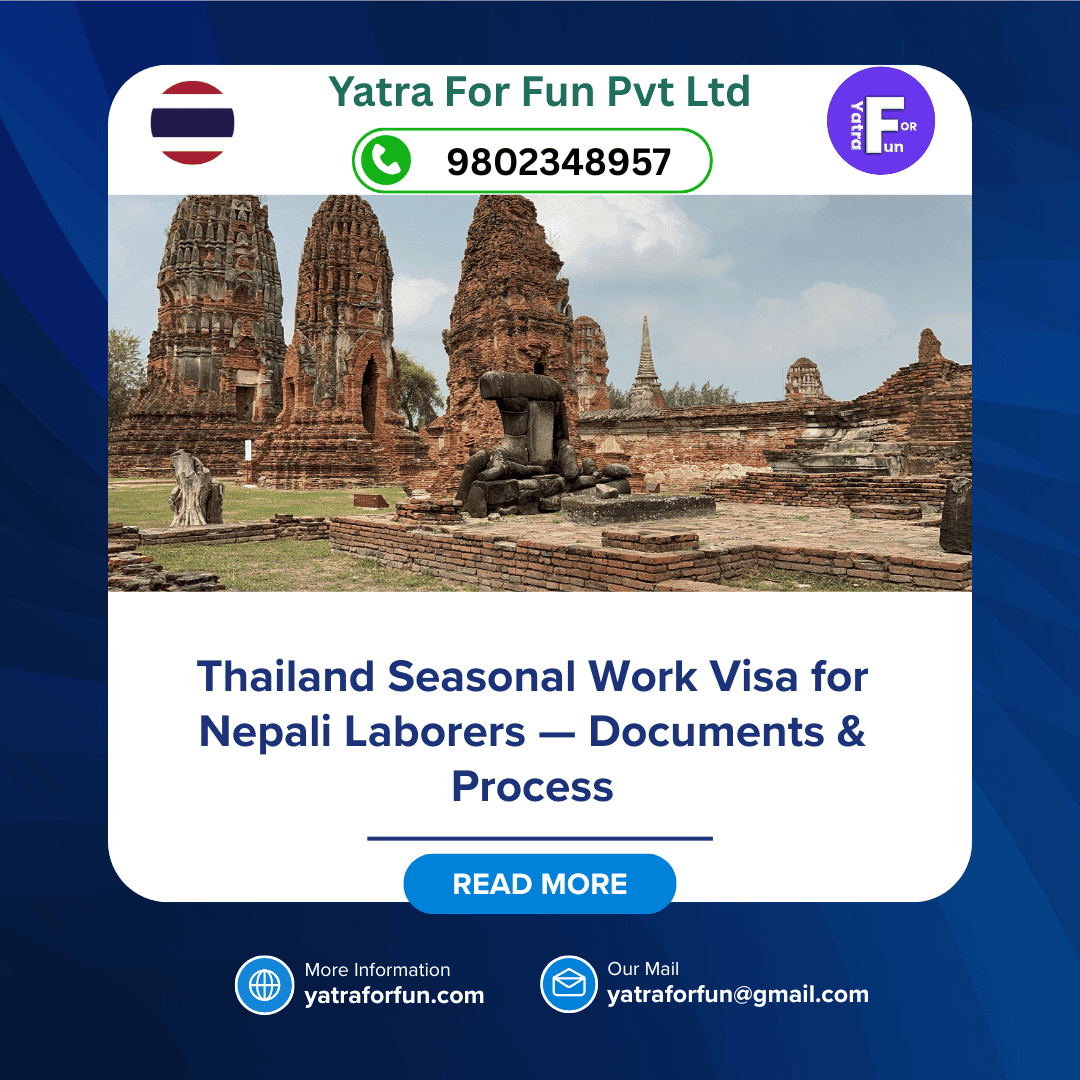By Sandeep Chaudhary
Thailand Seasonal Work Visa for Nepali Laborers — Documents & Process

For Nepali citizens planning to work in Thailand for a short or seasonal period, understanding the visa rules and employment laws is essential. Thailand currently does not have a specific “seasonal work visa” category like countries such as Japan or South Korea. However, Nepali workers who wish to engage in temporary or short-term employment can apply under the Non-Immigrant “B” (Business/Employment) Visa, which allows foreign nationals to work legally once they receive a Work Permit from the Ministry of Labour in Thailand.
The process begins with securing an employment offer or labor contract from a Thai employer. The employer must be legally registered in Thailand and obtain approval from the Department of Employment (Ministry of Labour) for hiring a foreign worker. The company needs to file a WP3 Form or pre-approval request to the labour office, outlining the position, nature of work, and contract duration. Once the Thai authority issues the work approval letter, the worker can apply for the Non-Immigrant “B” Visa at the Royal Thai Embassy in Kathmandu.
The required documents for the Non-Immigrant “B” Visa include a valid passport (minimum six months validity), filled visa application form, recent photographs, employment contract or appointment letter, medical certificate, police clearance certificate, company registration documents of the employer, proof of financial capacity (usually THB 20,000 or equivalent), and in some cases, educational certificates. Once the visa is issued, the worker can enter Thailand to start the employment procedure. Upon arrival, the employer must complete the Work Permit Application at the Ministry of Labour, submitting the worker’s passport, visa copy, medical certificate, photographs, and other required papers.
The work permit is typically granted for the duration of the contract, up to one year, and is renewable if the employment continues. However, since seasonal jobs are short-term by nature, most permits issued for Nepali workers are valid for three to six months only. The permit clearly specifies the company, job type, and work location — meaning the worker cannot change employers or job types without reapplying for a new permit. Once the permit is issued, workers must also register their address and immigration details and must report to immigration every 90 days if they stay longer than three months.
It is important to note that working without a permit is strictly illegal in Thailand and can result in heavy fines, detention, or deportation. Moreover, certain occupations are prohibited for foreigners, such as agricultural labor, construction work, and some factory-level manual jobs. Therefore, Nepali workers must ensure that their job position is legally approved under Thai labour law before applying. Seasonal workers are generally allowed in areas such as hospitality, seafood processing, logistics, cleaning, or manufacturing, depending on employer approval.
While Thailand does not officially operate a bilateral labor agreement with Nepal for seasonal work, many Nepali laborers travel through private recruitment agencies or direct company sponsorships. It is crucial to verify that the employer is legitimate and that all visa procedures are handled through official channels. To avoid fraud or legal complications, applicants are advised to seek help from trusted visa consultancies such as Yatra For Fun Pvt. Ltd., which assists Nepalis with documentation, employer verification, and work permit coordination for over 70 countries, including Thailand. For assistance, contact 9802348957 or 9708072951, or visit https://www.yatraforfun.com.









